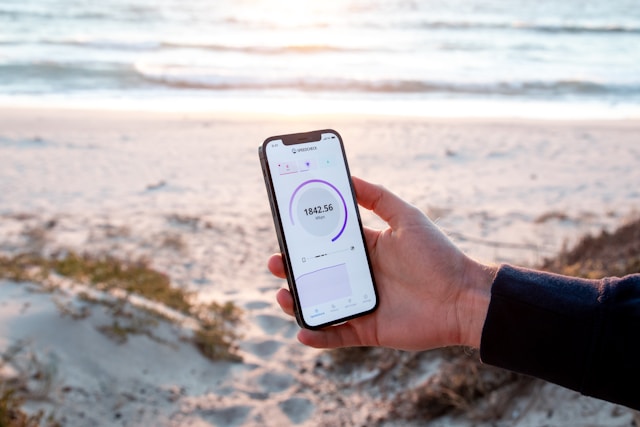Few things are more frustrating than a slow internet connection especially when you’re working from home, streaming your favorite show, or trying to win an online game. Lag, buffering, or sluggish downloads can bring everything to a halt. The good news? You don’t have to be a tech wizard to improve your connection. Whether your internet is dragging or you’re just looking for better performance, these tips for faster internet can help you get back up to speed.
Start with a Speed Test
Before diving into solutions, get a baseline of your current internet speed. Use tools like Speedtest.net or Fast.com to measure your download and upload rates.
-
Compare your results to your ISP plan. If you’re paying for 100 Mbps but only getting 20 Mbps, there may be an issue.
-
Run multiple tests at different times of day to spot patterns or peak-time slowdowns.
Restart Your Equipment
One of the simplest ways to fix slow internet is by rebooting your modem and router.
-
Unplug both for at least 30 seconds, then plug them back in.
-
This clears the memory and may resolve hidden connection issues.
-
You should also reboot your devices occasionally computers, phones, smart TVs, etc.
Optimize Your Wi-Fi Signal
If you’re using Wi-Fi and experiencing dead zones or weak signal, it’s time to optimize your setup. Here’s how to improve Wi-Fi performance:
Position Your Router Strategically
-
Place it in a central location, ideally elevated (like on a shelf).
-
Avoid placing it near thick walls, metal appliances, or microwaves.
-
Keep it in an open space for better signal distribution.
Reduce Signal Interference
-
Other wireless devices can interfere with your signal.
-
Switch to the 5 GHz band if you’re on a dual-band router it’s less crowded and offers faster speeds at short range.
Upgrade Your Router
-
If your router is more than 3–5 years old, consider upgrading to a newer model with better range and faster speeds.
-
Mesh Wi-Fi systems are a great solution for larger homes or homes with multiple floors.
Limit Bandwidth Usage
Your internet slows down when too many devices compete for the same connection. To speed up your internet connection, try the following:
-
Disconnect unused devices like tablets, smart speakers, or IoT gadgets that don’t need to be online.
-
Schedule large downloads (like game updates or cloud backups) during off-peak hours.
-
Enable Quality of Service (QoS) on your router to prioritize streaming, gaming, or video calls over background traffic.
Update and Upgrade Your Equipment
Outdated hardware can be a major bottleneck. To ensure you’re not limited by old tech:
-
Update your router’s firmware regularly. Most modern routers let you check for updates in their admin settings.
-
Replace outdated modems and routers that don’t support the latest speeds or standards (look for models that support Wi-Fi 6).
-
Use Ethernet cables for high-priority tasks like gaming or video conferencing. A wired connection is typically faster and more reliable than Wi-Fi.
Optimize Device and Software Settings
Sometimes, the issue lies with your device rather than the network.
-
Close background apps and programs using internet bandwidth (like cloud storage syncing or software updates).
-
Use ad blockers and lightweight browsers to reduce page load times.
-
Scan your device for malware or viruses that might be secretly using your bandwidth.
-
Clear your cache and cookies regularly to avoid performance lags while browsing.
Advanced Tweaks for Tech-Savvy Users
If you’ve tried the basics and want to go further, here are some more advanced ways to increase internet speed:
Change DNS Settings
Switching to a faster DNS provider like Google DNS (8.8.8.8) or Cloudflare DNS (1.1.1.1) can improve browsing speeds and reliability.
Use a Wi-Fi Extender or Mesh System
For larger homes, a single router may not cover every corner.
-
Wi-Fi extenders repeat the signal to hard-to-reach areas.
-
Mesh systems (like Eero, Google Nest, or Orbi) use multiple nodes to blanket your entire home in strong Wi-Fi.
Call Your ISP
If you’ve tried everything and are still having problems, it might be time to talk to your internet service provider:
-
Ask if there are known outages or issues in your area.
-
Inquire about plan upgrades or faster speeds now available in your location.
-
Ask if they offer newer, faster modems or routers as part of your plan.
Conclusion
Slow internet doesn’t have to be your new normal. From simple fixes like restarting your router to advanced techniques like changing DNS servers or upgrading your hardware, there are plenty of ways to speed up your internet connection.

